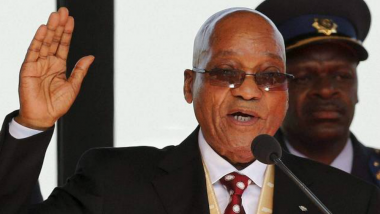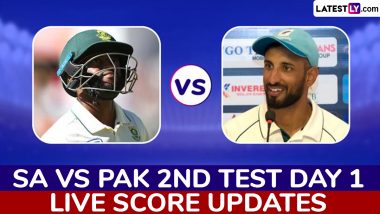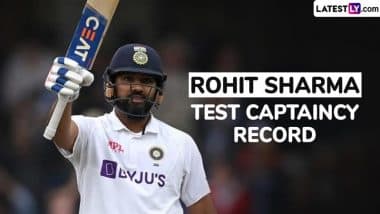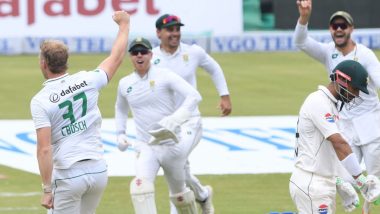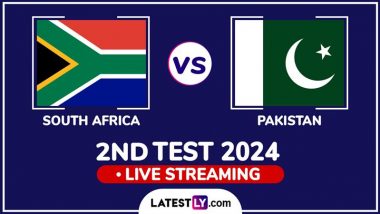South Africa has been the one shining example in a continent that has been marred by dictatorships, periodic ethnic violence, failed states and debilitated economies. It was a phoenix that rose from the ashes of apartheid to create a democratic republic and an economy that grew to be a middle-income developed country.
Yet, less than 25 years later the African National Congress party that was revered by South Africans and was led by the late Nelson Mandela has been forced to ask the elected President to step down in order to ensure its own survival as well as shore up its tattered credibility.
Zuma The Man
Jacob Zuma is an anti-apartheid fighter himself and spent ten years in jail during the apartheid regime. He came from humble beginnings and he never attended formal schooling. Zuma was taught English by his jail mates. He rose on to lead the African National Congress and was elected the fourth President of a democratic South Africa. He was popular for his relatability with the common man and his simple way of speaking. Yet Zuma’s colourful personality meant that he was in the news for many reasons apart from his policy decisions. Zuma is known for having married six times and fathering 21 children.
Charges of Corruption
Corruption and impropriety charges have dogged Jacob Zuma even before he became president. In 2006 he was acquitted of the charge of rape but the fact was that he slept with a family-friend’s daughter while being married. He was also facing charges of money laundering and profiteering from a controversial $5 billion arms deal that he signed in 1999. In 2017, the South African Supreme Court ruled that 18 corruption charges would be reinstated against Zuma. By the time his first term as President came to a close, Zuma became embroiled in another controversy that saw South Africa’s poor and rural supporters turn away from him, his traditional voter base. He used government funds to renovate his mansion in his village which included swimming pools, amphitheatre, cattle enclosures and a visitor entertainment centre.
The Fall of Jacob Zuma Has An Indian Connection
The second-term of Jacob Zuma’s presidency saw his name frequently associated with the family of the Guptas. The Gupta family comprises of three brothers who moved to South Africa from Uttar Pradesh, India in the 1990s when the country’s economy was opening up. Over the next decade, they went on to set up businesses in computers, media, mining, energy and even air travel.
The BBC reports that Guptas say they met Jacob Zuma at one of their business functions over a decade ago. Since then the two families have enjoyed a symbiotic relationship with Zuma’s wife, daughter and son even holding positions in the Gupta company at varying times.
The Gupta family’s first big public controversy came in 2013 when they were hosting the wedding for their niece. Wedding guests coming in from India and other parts of the world were flown in and the private jet was landed at a military air base – a custom reserved for visiting diplomatic guests and government leaders. The guest list of about 200 people, were ferried in a convoy of luxury vehicles, and were even given a police escort to the famous Sun City Holiday resort in the North West province. The resulting scandal saw the family issue an apology but the mechanics of how they were allocated government resources for an obviously private function has never been established.
The following year there were allegations of the Gupta brothers trying to bribe senior government ministers at their palatial home while President Jacob Zuma was in the adjacent room.
‘State Capture’
Public prosecutors released a report in 2016 that alleged the capture of South Africa’s state machinery by a corporate entity. South African media named it ‘state capture’ as the report outlines the use of state companies for personal enrichment. The report has interviews with a former finance minister, and junior ministers who allege that the Gupta brothers asked for state funds to be diverted to their business ventures like investing in their newspaper and wanted South African Airways to drop its air routes to the benefit of India-based Jet Airways. These and many more allegations state that this happened with the knowledge of Jacob Zuma. Zuma has denied the charges but the magnitude of the charge coupled with the state of the economy saw the beginning of a series of protests against him.
South Africa’s Economy
South Africa is part of the BRICS grouping (Brazil, Russia, India and China) that brought together the world’s fastest-growing economies. This was because when South Africa opened its economy in 1994, it had many advantages in its favour. The country has huge deposits and is an exporter of gold, diamonds and platinum. As the country had decades of sanctions it had become an extremely self-reliant economy with a strong manufacturing infrastructure and a strong and independent financial system.
This meant that in the first 15 years South Africa saw high-growth. But when its population grew and Zuma took over, he had no clear policy for the economy. South Africa’s weak point has been its education infrastructure. The white minority rule had never created an affordable education system for its black majority population and as countries in the world diversified into services, South Africa was left behind.
Today, due to a weak education system turning out low-qualified workers as well as a manufacturing industry that has not been able to compete with the likes of China, India and even Bangladesh; South Africa has unemployment rates touching 28%. Among the youth, the unemployment rate is close to 40%.
The divide between South Africa’s rich and poor has never been starker. The dream that the African National Congress party promised its voters of a fair and equal society has never seemed more distant. Within the nation of 55 million people, just a tenth of the population, mostly white, control more than 90 percent of the wealth, according to a research conducted by South Africa’s Stellenbosch University.
South Africa’s growth has averaged at close to 1.5% since Jacob Zuma took over. The World Bank predicts South Africa’s growth rate to be close to just 1.1% in 2018. Two credit rating agencies have downgraded South Africa’s economy to junk status.
South Africa’s new President Cyril Ramaphosa is an old-ANC office bearer and an established businessman. As a former trade union leader and protégé of Mr. Mandela, he enjoys credibility among a range of interest groups, while carrying a reputation as a savvy and strategic operator. It would be an understatement to say that he has an uphill task of cleaning up the government machinery and instituting policies that will kick the economy into an upward trajectory.
(The above story first appeared on LatestLY on Feb 17, 2018 11:10 AM IST. For more news and updates on politics, world, sports, entertainment and lifestyle, log on to our website latestly.com).









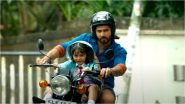

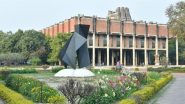

 Quickly
Quickly









